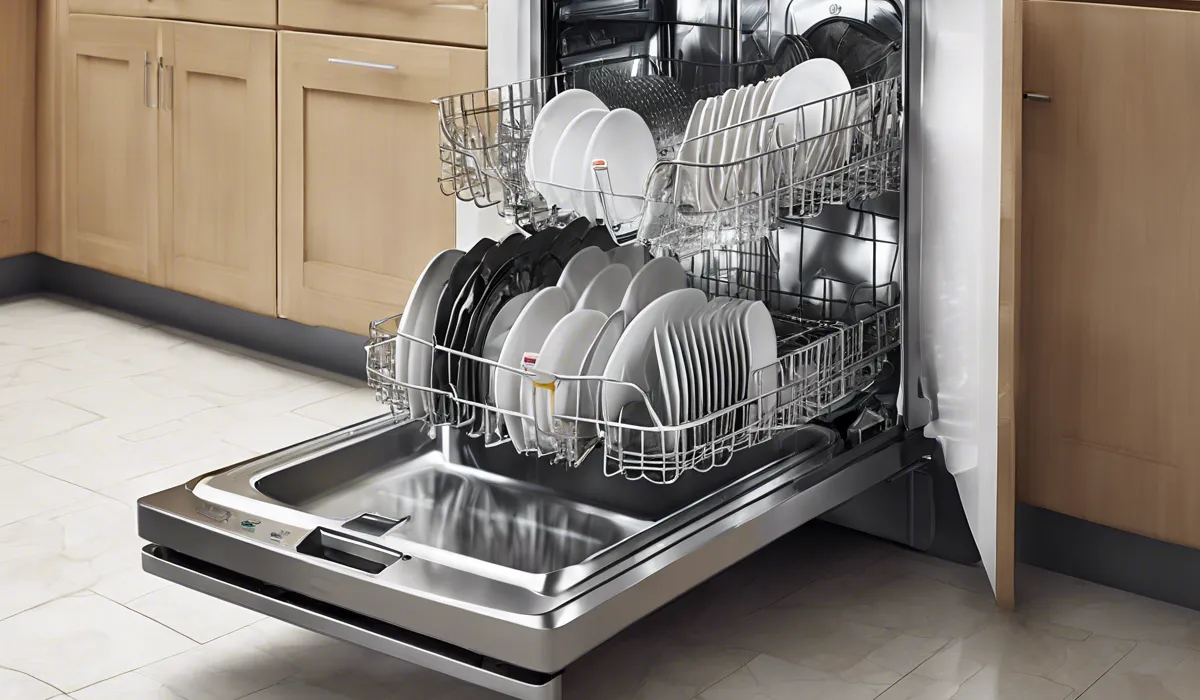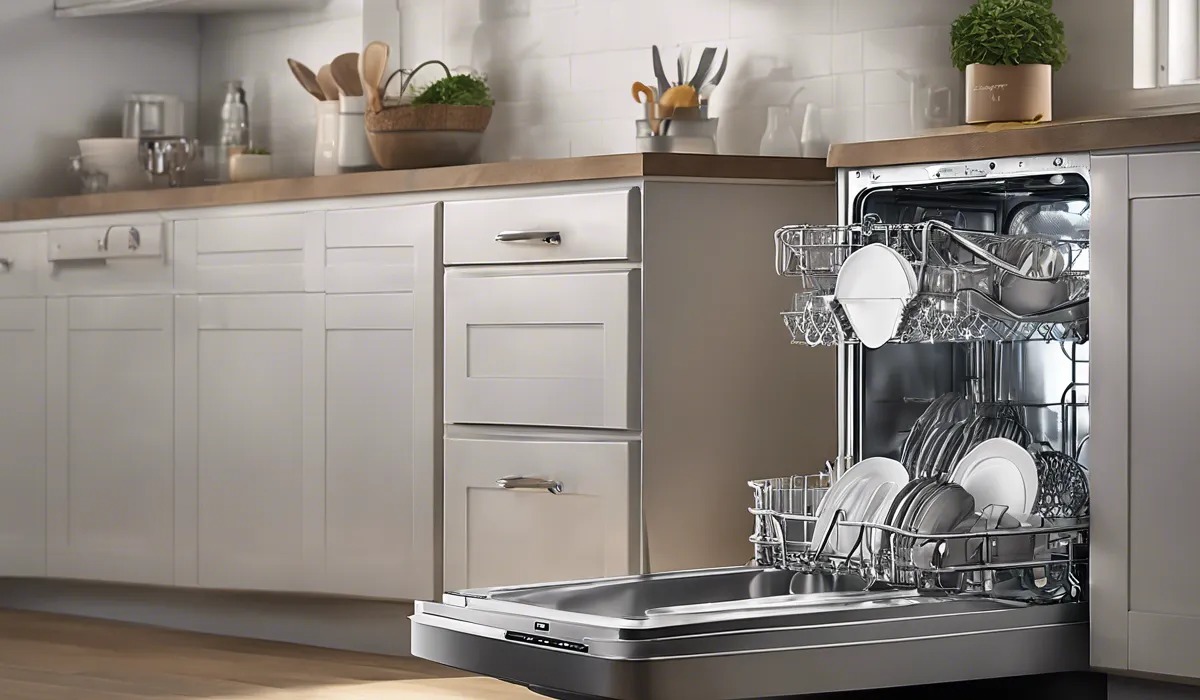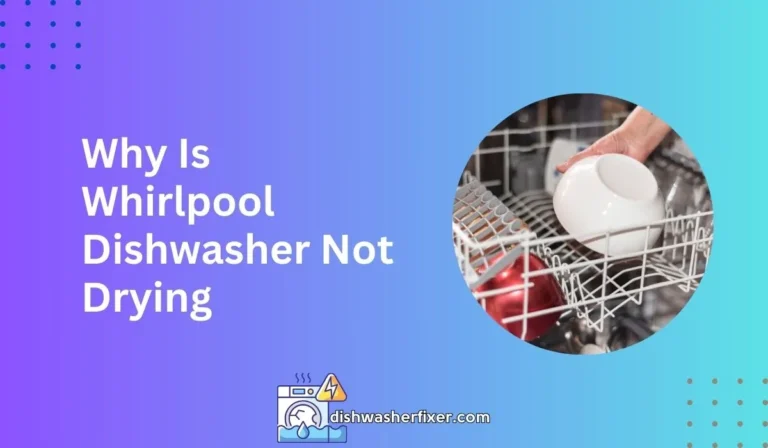Why Does My Dishwasher Keep Running? Fix It in Minutes!
A dishwasher may keep running due to a faulty timer, a stuck cycle, or a malfunctioning thermostat. Check for debris in the spray arms and float switch. If these components are clear, it might require professional repair or replacement of faulty parts.
Understanding the Dishwasher Cycle

Phases of a Dishwasher Cycle
At its core, a dishwasher cycle is designed to ensure that your dishes come out clean and dry. It typically consists of three main phases: the wash, rinse, and dry cycles.
During the wash phase, the machine sprays hot water and detergent to remove food and grime.
The rinse phase follows, using fresh water to wash away detergent and any remaining food particles. Finally, the dry phase uses heat or a fan to dry the dishes.
Average Cycle Duration
The average dishwasher cycle typically lasts between one and a half to four hours. However, the duration can vary greatly depending on the model of the dishwasher, the selected cycle, and the condition of the dishes being washed.
The standard cycle is sufficient for daily use, but some dishwashers offer shorter or longer options to fit different needs.
Factors Affecting Cycle Duration
Several factors can extend the duration of a dishwasher cycle. Hard water may require additional time for the dishwasher to effectively clean the dishes, while a heavy soil level can trigger a longer wash phase.
User-selected options like ‘heavy wash’ or ‘sanitize’ can also prolong the cycle. Additionally, the dishwasher may run longer to reach the proper temperature if the heating element is not functioning efficiently.
Common Reasons for Extended Dishwasher Cycles

Sensor Issues
Modern dishwashers are equipped with sensors that adjust the cycle duration based on how dirty the dishes are.
If these sensors are malfunctioning, they may misread the level of dirt, causing the dishwasher to run longer than necessary. This could lead to frustration and unnecessary energy consumption.
Clogged Filters and Their Impact
Over time, food debris and other particles can clog the filters of your dishwasher.
This clogging can impede water flow, reducing the efficiency of the wash cycle and forcing the dishwasher to run longer to achieve the same level of cleanliness. Regular cleaning of the filters is essential to maintain optimal performance.
Issues with the Heating Element
The heating element in a dishwasher is critical for both the wash phase—to heat the water to the right temperature—and the drying phase.
If the heating element is faulty, it can significantly impact the duration of the cycle, as the dishwasher may take extra time trying to heat the water or to dry the dishes at the end of the cycle.
Timer Problems
A malfunctioning timer can be the culprit behind a dishwasher that seems to run endlessly.
The timer regulates the length of each cycle and the transition between them. If it’s not working correctly, it could cause the dishwasher to get stuck in a loop, continuously running without progressing to the next phase.
User Settings and Cycle Length
Choosing specific settings like ‘heavy wash’ or ‘heated dry’ can increase the duration of a dishwasher cycle.
These settings are designed for heavily soiled items or for providing a more thorough drying process, but they do require more time. It’s important to select the appropriate cycle for the load to avoid unnecessarily long run times.
Troubleshooting and Solutions

Cleaning Your Dishwasher Filters
To maintain your dishwasher’s performance, it’s crucial to regularly clean the filters. Start by removing the bottom rack to access the filter.
Twist and lift it out, then rinse it under running water. Use a soft brush to remove any trapped particles. Reinsert the filter, ensuring it’s properly secured.
Replacing a Faulty Heating Element
If you suspect that the heating element is to blame for extended cycles, testing and potentially replacing it may be necessary. First, make sure the dishwasher is unplugged or the circuit breaker is off.
Access the heating element, usually found at the bottom of the dishwasher, and check it with a multimeter for continuity. If it’s faulty, consult your dishwasher’s manual for replacement instructions or contact a professional for assistance.
Dealing with Timer Issues
For a malfunctioning timer, resetting the dishwasher may solve the problem. If not, the timer may need to be replaced.
This can be a complex task, so if you’re not comfortable with DIY repairs, it’s best to call a professional. They can properly diagnose the issue and replace the timer if necessary.
Selecting the Right Cycle and Settings
To avoid unnecessarily long dishwasher cycles, choose the cycle that best matches your load.
For lightly soiled dishes, a quick wash might suffice. For normal loads, the standard cycle should do. Reserve heavy wash settings for pots and pans with baked-on food. Be mindful of the settings you choose to save time and energy.
When to Call a Professional
If you’ve tried the above steps and your dishwasher still runs too long, it may be time to call a professional. Issues like complex sensor malfunctions or electronic problems are often beyond the scope of DIY fixes.
A trained technician can diagnose the issue and perform repairs that are safe and effective.
FAQs About Why My Dishwasher Keeps Running
What causes a dishwasher to continue running without stopping?
A dishwasher may continue running due to issues like a faulty timer, a stuck cycle, or a malfunctioning thermostat.
How can I fix a dishwasher that won’t stop running?
First, check for debris in the spray arms and float switch, and if these are clear, consider seeking professional repair or replacement of the faulty parts.
Could a faulty timer be the reason my dishwasher keeps running?
Yes, a faulty timer is one of the common reasons a dishwasher might keep running.
What should I do if my dishwasher cycle is stuck and won’t finish?
If your dishwasher cycle is stuck, you should check for obstructions or malfunctioning components and may need to reset the dishwasher or seek professional assistance.
Is a malfunctioning thermostat likely to cause a dishwasher to run continuously?
Yes, a malfunctioning thermostat can cause a dishwasher to run continuously by not signaling the end of a heating cycle.
Final Thoughts
A dishwasher that continues to run may be experiencing issues with its timer, a cycle that won’t complete, or a defective thermostat.
Ensuring the spray arms and float switch are free from debris is a good first step. If problems persist, professional assessment may be necessary to repair or replace the malfunctioning components.





